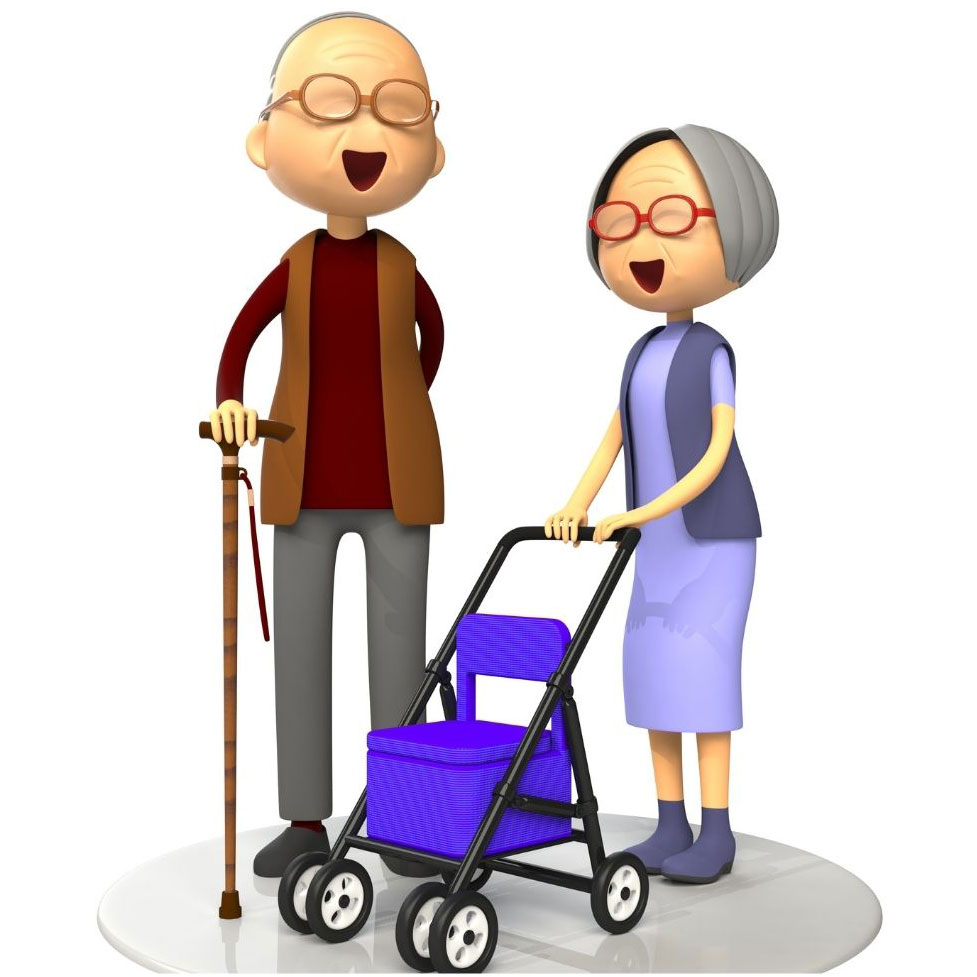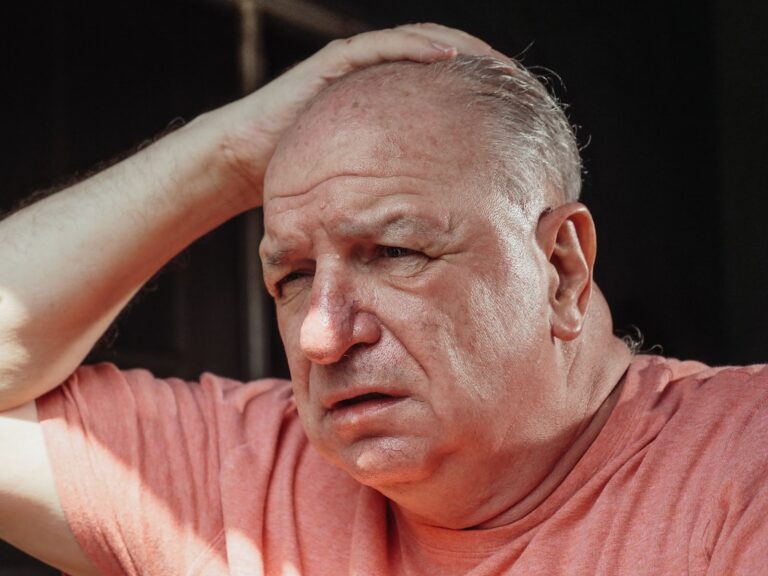Navigating the tumultuous waters of grief, I’ve often wondered, “How do elderly widowers react to the death of their significant other?” Losing a life partner, especially in the golden years, is undeniably heart-wrenching. As someone deeply invested in elderly independence and their emotional well-being, I believe it’s crucial to understand and empathize with the emotional journey widowers embark upon. This article will shed light on the multifaceted reactions of elderly men who lose their spouses, drawing on real-life accounts and expert insights. Through my lens of experience I hope to offer both understanding and a lifeline to those grappling with such profound loss.
React To The Death Of Their Significant Other: Understanding The Grief Process
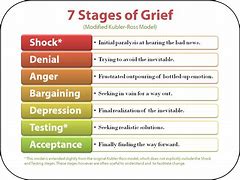
The death of a spouse or significant other is a profound loss that can have a significant impact on the lives of elderly widows and widowers. Understanding the grief process can help individuals navigate through the various stages of grief and find ways to cope with their emotions.
Grief is a natural response to loss, and it is important to recognize that everyone grieves differently. However, there are common stages that many people go through when experiencing the death of a loved one. These stages include denial, anger, bargaining, depression, and acceptance.
In the initial stage of grief, many elderly widows and widowers may experience a sense of disbelief or denial. They may find it difficult to accept that their partner is no longer with them and may have a hard time adjusting to life without them. This stage can be accompanied by feelings of shock and numbness.
As the reality of the loss sets in, anger may arise. Elderly widows and widowers may feel angry at their partner for leaving them or angry at themselves for not being able to prevent death. It is important to acknowledge and express these feelings in a healthy way, such as through talking with a trusted friend or therapist.
Bargaining is another common stage of grief, where individuals may find themselves making deals or promises in an attempt to bring their loved one back. This stage is often characterized by feelings of guilt and regret.
Depression is a natural response to loss and can manifest in various ways. Elderly widows and widowers may experience feelings of sadness, loneliness, and emptiness. It is important to seek support during this stage, whether it be from friends, family, or a support group.
Finally, acceptance is the stage where individuals begin to come to terms with the loss and find ways to move forward. This does not mean forgetting or getting over the loss, but rather finding a new sense of normalcy and incorporating the memory of their loved one into their lives.
Understanding the grief process can help elderly widows and widowers navigate through the complex emotions that come with the death of their significant other. It is important to give oneself permission to grieve and seek support from others who have experienced similar losses.
Initial Reactions And Emotions
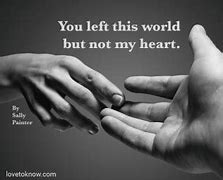
When an elderly widow or widower experiences the death of their significant other, they often go through a range of initial reactions and emotions. These reactions can vary from person to person, but there are some common responses that many individuals in this situation may experience.
One of the most common initial reactions is shock and disbelief. The sudden loss of a partner can be incredibly overwhelming, and it may take some time for the reality of the situation to sink in. Many widows and widowers report feeling numb or in a state of disbelief immediately following the death of their significant other.
Alongside shock, grief is another common emotion experienced by elderly widows and widowers. Grief is a natural response to loss, and it can manifest in a variety of ways. Some individuals may feel intense sadness and may cry frequently, while others may experience anger, guilt, or even relief. It is important to remember that there is no right or wrong way to grieve, and each person’s experience will be unique.
Loneliness is another emotion that often accompanies the death of a spouse or significant other. After spending many years together, the absence of their partner can leave widows and widowers feeling incredibly lonely and isolated. This feeling of loneliness can be particularly challenging for elderly individuals who may have limited social connections or support systems.
In addition to these initial reactions and emotions, elderly widows and widowers may also experience physical symptoms such as fatigue, loss of appetite, or difficulty sleeping. These physical symptoms are a normal part of the grieving process and can be attributed to the stress and emotional toll of losing a loved one.
Coping Mechanisms And Support Systems
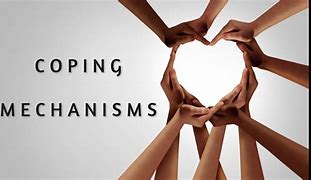
When faced with the death of their significant other, elderly widows and widowers often employ various coping mechanisms and seek support systems to help them navigate through the grieving process. These coping mechanisms and support systems can play a crucial role in helping them heal and adjust to life without their partner.
One common coping mechanism is seeking emotional support from family and friends. Elderly widows and widowers may lean on their loved ones for comfort, understanding, and a listening ear. Sharing memories and talking about their feelings can provide a sense of relief and help them process their grief.
Joining support groups specifically designed for widows and widowers is another valuable coping mechanism. These groups offer a safe space for individuals who have experienced similar losses to connect, share their stories, and provide mutual support. Being surrounded by others who understand their pain can be immensely comforting and validating.
Engaging in activities that bring joy and provide a sense of purpose can also be helpful. Elderly widows and widowers may find solace in hobbies, volunteering, or pursuing new interests. These activities can serve as a distraction from grief, promote a sense of accomplishment, and help them rebuild their lives.
Some individuals may also turn to spirituality or religion as a coping mechanism. Participating in religious or spiritual practices, attending services, or seeking guidance from clergy members can provide comfort and a sense of hope during difficult times.
Professional help and counseling are additional resources that can assist elderly widows and widowers in coping with their loss. Grief counseling can provide a safe and supportive environment for them to express their emotions, learn healthy coping strategies, and gain insights into the grieving process. Therapists can also help them navigate the challenges of adjusting to life without their partner and provide guidance on rebuilding their lives.
Overall, coping mechanisms and support systems are essential for elderly widows and widowers as they navigate the grieving process. By seeking emotional support, joining support groups, engaging in meaningful activities, exploring spirituality, and seeking professional help, they can find comfort, healing, and a renewed sense of purpose as they move forward in life after the loss of their significant other.
Changes In Daily Life And Routines

The death of a significant other can bring about significant changes in the daily life and routines of elderly widows and widowers. This loss often disrupts the established patterns and dynamics of their lives, leaving them to navigate a new normal without their partner. Here are some common changes that widows and widowers may experience:
1. Loss of companionship:
One of the most profound changes is the loss of companionship. Elderly widows and widowers may feel a deep sense of loneliness and emptiness as they adjust to life without their partner by their side. Simple activities like eating meals, watching TV, or going for walks may feel different and less enjoyable without their loved one.
2. Changes in household responsibilities:
In many cases, the surviving spouse may have to take on new responsibilities and tasks that were previously handled by their partner. This can include managing finances, household chores, and making important decisions. Adjusting to these new roles can be overwhelming and challenging, especially if they were not previously involved in these areas.
3. Loss of identity:
The death of a spouse can also lead to a loss of identity for the surviving partner. For many elderly individuals, their identity and sense of self were closely tied to their role as a spouse. Without their partner, they may struggle to define themselves and find a new sense of purpose and meaning in life.
4. Changes in social interactions:
The loss of a spouse often results in changes in social interactions. Widows and widowers may find that their social circle changes, as they may no longer be included in activities or events that were previously shared with their partner. They may also feel uncomfortable attending social gatherings alone or find it difficult to connect with others who have not experienced a similar loss.
5. Adjusting to a new routine:
Establishing a new routine can be helpful in coping with the loss. This may involve creating new daily rituals, finding new hobbies or interests, or reconnecting with old friends. It is important for widows and widowers to give themselves time and space to adjust to these changes and find a routine that works for them.
Overall, the changes in daily life and routines that elderly widows and widowers experience after the death of their significant other can be challenging and overwhelming. It is important for them to seek support from family, friends, or support groups to help navigate these changes and find a new sense of purpose and fulfillment in life.
Dealing With Loneliness And Isolation
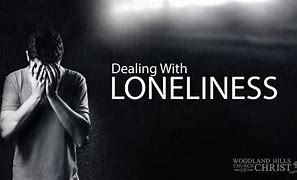
The death of a significant other can leave elderly widows and widowers feeling a deep sense of loneliness and isolation. After years of companionship and shared experiences, suddenly being alone can be overwhelming and disorienting. It is important for them to acknowledge and address these feelings in order to begin the healing process.
One of the first steps in dealing with loneliness and isolation is to reach out for support. This can be done through family and friends, who can provide a listening ear and offer comfort during this difficult time. Joining support groups specifically for widows and widowers can also be beneficial, as it allows individuals to connect with others who are going through a similar experience. These groups provide a safe space to share feelings, memories, and concerns, and can help combat feelings of isolation.
Engaging in activities and hobbies that bring joy and fulfillment can also help alleviate loneliness. This could include joining clubs or organizations that align with personal interests, volunteering in the community, or taking up new hobbies. By staying active and involved, widows and widowers can create new connections and find a sense of purpose in their lives.
Technology can also play a role in reducing feelings of loneliness and isolation. Many elderly individuals are now embracing social media platforms and online communities to connect with others. This allows them to stay in touch with family and friends, as well as meet new people who share similar interests. Virtual support groups and online forums can also provide a sense of community and support.
Lastly, seeking professional help and counseling can be beneficial for those struggling with loneliness and isolation. Therapists and counselors can provide guidance and support in navigating the grieving process and help individuals develop coping strategies. They can also assist in identifying any underlying mental health issues that may be exacerbating feelings of loneliness.
Dealing with loneliness and isolation after the death of a significant other is a challenging journey, but with the right support and coping mechanisms, elderly widows and widowers can find solace and connection in their lives once again. It is important for them to be patient with themselves and allow time for healing and adjustment.
Seeking Professional Help And Counseling

The death of a significant other can be an incredibly challenging and overwhelming experience for elderly widows and widowers. It is not uncommon for them to experience a wide range of emotions, including sadness, anger, guilt, and even relief. While it is natural to grieve and mourn the loss of a loved one, sometimes the intensity of these emotions can become too much to handle on their own. This is where seeking professional help and counseling can be beneficial.
Professional help and counseling provide a safe and supportive environment for elderly widows and widowers to express their feelings and emotions. A trained therapist or counselor can offer guidance and support throughout the grieving process, helping them navigate through the various stages of grief. They can also provide coping strategies and techniques to manage the overwhelming emotions that often accompany the loss of a spouse.
Counseling can also help elderly widows and widowers address any unresolved issues or conflicts that may have existed in their relationship. It can provide an opportunity for them to work through their feelings of guilt, regret, or unfinished business, allowing them to find closure and peace.
In addition to individual counseling, support groups specifically designed for widows and widowers can also be beneficial. These groups provide a sense of community and understanding, as members share their experiences and offer support to one another. Being surrounded by others who have gone through similar losses can be incredibly comforting and validating.
It is important to note that seeking professional help and counseling is not a sign of weakness or failure. It is a proactive step towards healing and finding a new sense of purpose and meaning in life. By reaching out for support, elderly widows and widowers can gain the tools and resources they need to navigate the grieving process and ultimately move forward in their lives.
In conclusion, seeking professional help and counseling is an important aspect of coping with the death of a significant other for elderly widows and widowers. It provides a safe and supportive environment to express emotions, work through unresolved issues, and find a sense of community and understanding. By seeking help, they can find the support and guidance they need to navigate the grieving process and ultimately find healing and hope.
Finding Meaning And Purpose After Loss
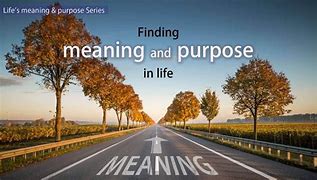
The death of a significant other can leave elderly widows and widowers feeling lost and questioning the meaning of life. However, finding meaning and purpose after loss is an important part of the healing process. Here are some ways that elderly widows and widowers can begin to find meaning and purpose in their lives after the death of their partner.
1. Reflect on the legacy of their loved one:
One way to find meaning after loss is to reflect on the legacy of the deceased. This can involve remembering their accomplishments, values, and the impact they had on others. By honoring their memory and continuing their legacy, widows, and widowers can find a sense of purpose.
2. Engage in activities that bring joy:
Engaging in activities that bring joy and fulfillment can help widows and widowers find meaning in their lives. This can include hobbies, volunteering, or pursuing new interests. By focusing on activities that bring them happiness, they can begin to rebuild their lives and find a sense of purpose.
3. Connect with others who have experienced loss:
Connecting with others who have experienced a similar loss can provide support and understanding. Joining support groups or participating in grief counseling can help widows and widowers find meaning by sharing their experiences and learning from others who have gone through a similar journey.
4. Give back to the community:
Many widows and widowers find meaning and purpose by giving back to their community. This can involve volunteering at local organizations, helping others in need, or participating in charitable activities. By making a positive impact on others, they can find a sense of fulfillment and purpose in their lives.
5. Explore spirituality or faith:
For some widows and widowers, exploring spirituality or faith can provide comfort and a sense of meaning. Engaging in religious or spiritual practices, attending religious services, or seeking guidance from a spiritual leader can help them find solace and purpose in their lives.
Finding meaning and purpose after the death of a significant other is a personal journey that may take time. It is important for elderly widows and widowers to be patient with themselves and allow themselves to grieve while also seeking ways to find meaning and purpose in their lives.
Building A New Support Network
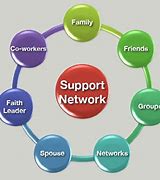
After the death of a significant other, elderly widows and widowers often find themselves in need of a new support network. Losing a partner can leave a void in their lives, and it is important for them to find ways to fill that void and establish connections with others.
One way to build a new support network is by reaching out to family and friends. Elderly widows and widowers can lean on their loved ones for emotional support, companionship, and practical assistance. Family members and close friends can provide a listening ear, offer a shoulder to cry on, and help with daily tasks or errands. They can also provide a sense of belonging and help the grieving individual feel less alone.
In addition to relying on existing relationships, it can be beneficial for elderly widows and widowers to seek out new social connections. This can be done through joining support groups or participating in community activities. Support groups specifically for widows and widowers can provide a safe space to share experiences, receive guidance, and find comfort in the company of others who have gone through similar losses. Community activities, such as volunteering or joining clubs or organizations, can also provide opportunities to meet new people and form new friendships.
Technology can also play a role in building a new support network. Many elderly individuals are now embracing technology and using social media platforms to connect with others. Online communities and forums can provide a virtual support network where widows and widowers can share their stories, seek advice, and find understanding from others who are going through similar experiences.
Building a new support network takes time and effort, but it is an important step in the healing process for elderly widows and widowers. By reaching out to family and friends, joining support groups, participating in community activities, and utilizing technology, they can find the companionship and support they need to navigate life after the loss of their significant other.
Moving Forward And Embracing Life After Loss

After the initial shock and intense grief that follows the death of a significant other, elderly widows and widowers often find themselves faced with the challenge of moving forward and embracing life once again. While the process of healing and finding a new sense of purpose may take time, there are several strategies and approaches that can help in this journey.
One important aspect of moving forward is allowing oneself to grieve and mourn the loss. It is essential for elderly widows and widowers to give themselves permission to feel the pain and sadness associated with their partner’s death. This may involve seeking support from friends, and family, or even joining support groups specifically designed for those who have lost a spouse or significant other.
Another crucial step in moving forward is finding new meaning and purpose in life. This can be achieved by exploring new hobbies, and interests, or even volunteering for causes that are meaningful to them. Engaging in activities that bring joy and fulfillment can help in the healing process and provide a sense of purpose.
Building a new support network is also vital for elderly widows and widowers. This may involve reaching out to friends, and family, or even joining social clubs or organizations that cater to their interests. Having a strong support system can provide companionship, understanding, and a sense of belonging, which are all essential in navigating life after loss.
Additionally, seeking professional help and counseling can be beneficial for those struggling with grief and loss. Therapists or grief counselors can provide guidance, support, and tools to help individuals cope with their emotions and navigate the challenges of moving forward.
Lastly, it is important for elderly widows and widowers to remember that it is okay to take things at their own pace. Healing and moving forward after the death of a significant other is a personal journey, and everyone’s timeline is different. It is essential to be patient and kind to oneself throughout this process.
In conclusion, moving forward and embracing life after the death of a significant other is a challenging but necessary step for elderly widows and widowers. By allowing themselves to grieve, finding new meaning and purpose, building a support network, seeking professional help, and being patient with themselves, they can gradually navigate through the grief and find joy and fulfillment once again.
Frequently Asked Questions
What is the final hurdle that most people according to Erik Erikson’s theory on aging?
Erik Erikson’s theory of psychosocial development involves eight stages, each representing a crisis that must be resolved. The final stage is called “Integrity vs. Despair.” In this stage, typically occurring from age 65 and onward, people reflect on their lives. Success in this stage means feeling a sense of fulfillment and acceptance of oneself, with a sense of integrity. Failure may lead to feelings of despair, regret, or dissatisfaction.
What is the basic idea behind disengagement?
Disengagement theory, first proposed by sociologists Elaine Cumming and William Earle Henry in 1961, posits that as people age, they naturally withdraw from social involvement and that this mutual withdrawal is a natural and acceptable process. This disengagement is seen as a way for both the individual and society to prepare for the end of life. It’s a controversial idea and has been challenged by other theories that emphasize continued social engagement and activity in later life.
Which is a social issue that many elderly females discover they are victims of?
The question refers to a specific context (possibly from quizlet), so I may not have access to the exact answer. However, elderly females, like many other demographic groups, may face various social issues including discrimination, social isolation, financial insecurity, and health-related challenges. Gender inequality and ageism could also be specific concerns for this demographic.
What is the basic idea behind disengagement theory as people age they generally withdraw from all forms of society?
This question echoes the second one, and the answer is the same: Disengagement theory argues that withdrawing from social roles and relationships is a natural part of aging. This mutual withdrawal between the individual and society serves to maintain social equilibrium and to allow the individual to reflect and prepare for the end of life. Critics of the theory argue that this withdrawal is not universal and may be more related to health or other factors rather than a natural or desirable part of aging.
Other Places For You To Explore
Explore
Conclusion
Navigating the complex emotions and behaviors of elderly widowers after the loss of a significant other is not a one-size-fits-all process. Every individual is unique, and their reactions to grief can vary widely. However, through thoughtful observation, empathy, and understanding, we can create a support system that acknowledges their feelings and helps them cope.
In my years of focusing on elderly independence, I have seen how essential it is to approach this subject with delicacy and respect. Connecting with elderly widowers, understanding their unique needs, and providing them with the resources and emotional support they require is integral to their well-being.
This article doesn’t just offer insights into the reactions of elderly widowers. It’s a guide, a hand to hold, a way to connect with those who are mourning the loss of their significant other. It’s about human compassion, empathy, and the willingness to walk beside someone during one of the most challenging times in their life.
Feel free to share this information, reach out with any questions, or consult the additional resources I’ve provided here. Together, we can build bridges of understanding, fostering a community that supports and uplifts its most vulnerable members during times of profound grief.
